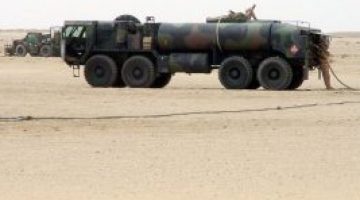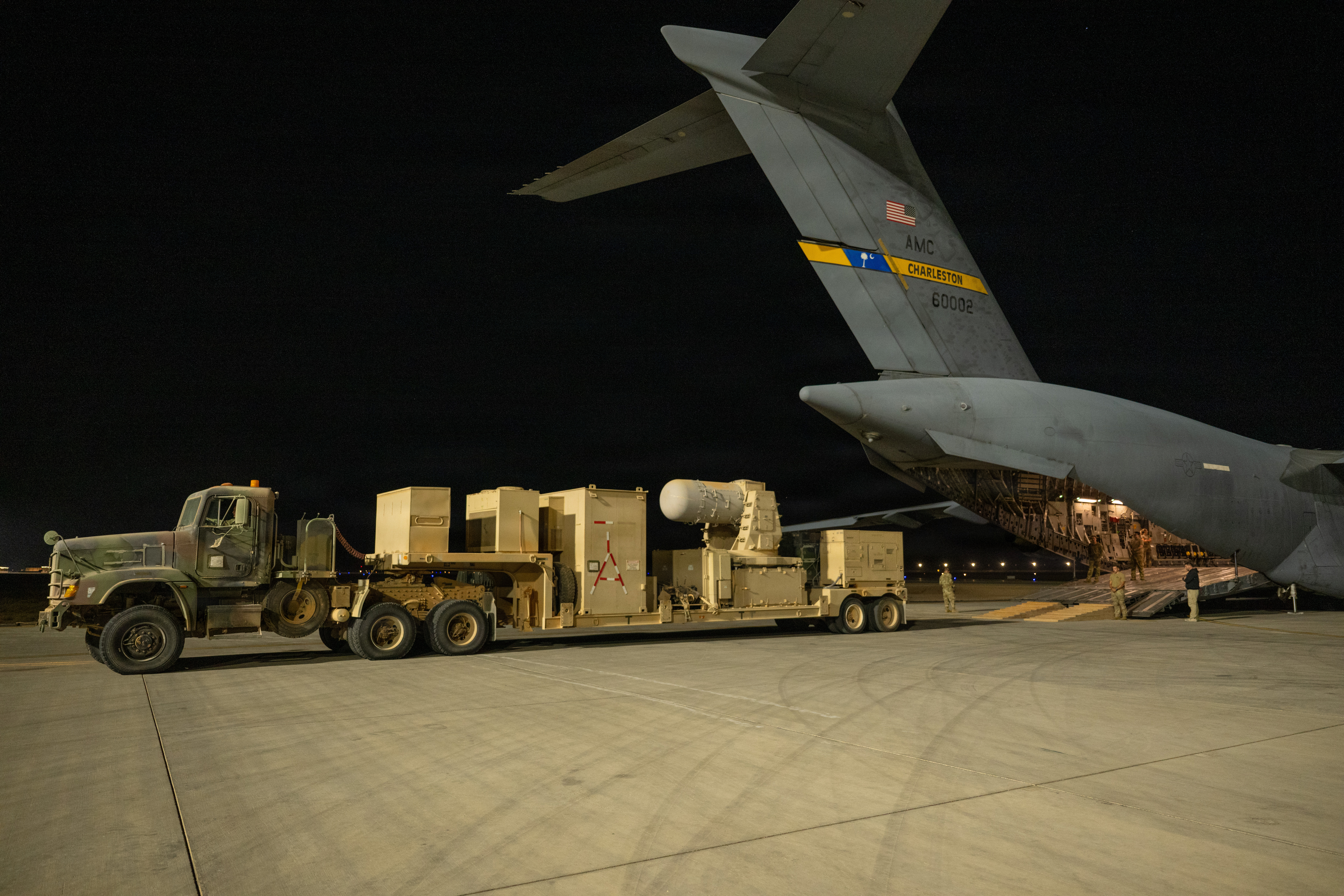Why Relationships Matter for Effective Negotiation

As a Battery Commander, I had five rules for my lieutenants. The first rule was liberally borrowed from one of the smartest officers I have ever worked with. Simply stated, rule #1 was “Relationships Matter – Don’t be an asshole.” My inclusion of this rule and its primacy as my first rule was based on my own abject failure as a lieutenant to follow it. The story that follows highlights how important relationships are to an officer’s ability to negotiate. When relationships are not separated from the problem, we often fail to meet our needs and achieve our objectives.
A failure of relationship
In August of 2012, I finally became a platoon leader. Over the previous two years, I had served as a Targeting Officer, a Company Fire Support Officer, and a Battalion Fire Support Officer, both in garrison and deployed to Afghanistan. But now I finally had my own Platoon, and we were setting out to go to the field for our first field training exercise. As a Paladin (155mm SP Artillery) Platoon Leader, I was responsible for preparing my forty-four soldiers, twelve vehicles, and all our equipment for the field. Our preparation began on Monday morning of a four-day work week (we had a three-day weekend before going to the field the subsequent Monday). That morning, I briefed the platoon’s operation order. Within the order was a key directive from Battalion – all vehicles must be fueled no later than 1100 on Thursday. At close of business on Monday, I was told all vehicles were fueled and ready. I received the same confirmation on Tuesday and Wednesday as well. So, you can imagine my surprise when I was standing in the Battalion Maintenance Officer’s office and our newest E-5 told the BMO he needed fuel at 1300 on Thursday. I lost my cool. Was I given false reports? Did he not hear me state the requirement the other sixteen times I had given the directive? These issues aside, to get the mission done, I was going to have to go hat in hand to the Battalion’s Distribution Platoon Leader and ask for fuel. I gave my E-5 a good tongue lashing and headed off to find the Distribution Platoon Leader to solve our problem.
As I trudged into my fellow Platoon Leader’s office to ask for assistance, I relayed my need. Coolly, he stated that my failure to plan did not constitute an emergency for him. In order to help me, he would have to pull soldiers out of mandatory training to run the fueler – and he was not going to do that. He made it clear that getting fuel was my problem and walked right out of his office to join his platoon’s training. I was incensed. Here I was, a prior-service senior first lieutenant with two deployments being dressed down by a brand-new second lieutenant. Didn’t he know that I had planned! I vowed then and there that I was never going to go out of my way to help that guy. As for fuel, luckily, I was told an hour later by my section chief that the vehicle had indeed been fueled on Monday. The fuel gauge on the vehicle was broke, the deficiency was on the 5988, and the E-5 was new to the section and did not know the gauge was broken. The fact that we had fuel did not change how I felt about the other Platoon Leader though.
The next month, the Distribution Platoon Leader came to my office early before physical training. He needed a Soldier who was a certified ammunition handler to run his ammunition distribution point on the M9 range that day. Did I have a Soldier who could do the detail? Even though I had two Soldiers sitting in the office at that very moment who could have supported the detail, I told him that “his failure to plan did not constitute an emergency on my part” and that I could not help him. Why? This was my opportunity to settle the score – to return the “favor” my peer had done me earlier. What made it even better was that I knew the Battalion Commander was arriving at his range early that morning and if the range were delayed, the Platoon Leader would take the brunt of it. It was my turn to be the asshole and it felt good
Later that day, the Battalion Commander happened to find me in the motor pool (our meeting, of course, was not happenstance). He relayed his experience on the M9 range that morning, how the Battalion was delayed in executing its mission, and the ripple effect the delay had for senior leaders across the formation. He then stated something along these lines: “The distro PL told me he asked you for assistance this morning and you couldn’t help. Your Battery was the only one not running a range today. . .did you really not have a handler?” I was not going to lie to my commander, and I told him why I had not supported the range with one of my own ammo handlers. It was my turn to be on the receiving end of a one-way conversation. Even worse, the other platoon leader found out I had intentionally let him fail, and our relationship continued to deteriorate.
If this was not bad enough, our continued poor relationship had further ramifications for my Soldiers. One key to an artillery unit’s overall success is how effective the Rearm, Refuel, Resupply, and Survey Point (R3SP) operations are conducted. This is the process by which the Distribution Platoon provides beans, bullets, and fuel to each of the firing platoons. During our field training exercises, our times to complete the R3SP were taking way too long, and my non-commissioned officers had some salient suggestions on how the process could be executed cleaner and faster. Unfortunately, when I went to relay their suggestions to the distribution Platoon Leader, he did not want to hear any of it. Our relationship, or lack of one, stood in the way. I needed him to do something and I could not force or coerce him to do it. Thus, I failed to negotiate effectively.
What I learned about relationships & negotiations
The seminal work on negotiations is Getting to Yes: Negotiating Agreement Without Giving In by Roger Fisher and William Ury. Originally published in 1981, the bestselling book has shaped all subsequent research into the field of Negotiation. Within the book, Fisher and Ury state that negotiators must “separate the people from the problem.” In the concept of principled negotiations, this is now defined as relationships. Relationships “comprise the way in which parties interact before, during, and after negotiations, and their perceptions of, and beliefs about, one another which affect how they interact.” In my case, I allowed my relationship with my peer to influence and derail my ability to negotiate effectively on behalf of my Soldiers. While the other platoon leader may have been frustrating and unsupportive in his original position, my subsequent “scorched earth” tactics destroyed the relationship. By failing to separate my personal opinions about the Platoon Leader from solving a joint problem (my Battery Commander was delayed at the same M9 range), I hindered my ability to negotiate.
Your reputation will precede you. The effectiveness of many battalions is directly impacted by the ability of the “lieutenant mafia” to solve problems at the lowest level without getting more bars or oak leaf clusters involved. The process of solving these problems is a negotiation – getting others to do what you need when you cannot force or coerce them to do so. The greatest predictor of success in these situations is not how right you are or what justification you can provide to compel the other side to act – the greatest predictor is the relationships you have across the formation. So, nurture them, provide support, and go out of your way to make others successful. Because there is going to be a moment when you need something that is out of your control, and your ability to effectively negotiate your way out of being stuck will be directly dependent upon the relationships you have.
Make sure to check out our article on Why Negotiations Skills Matter if you liked this one.
———
Travis Cyphers is an active duty Major and the Director of the West Point Negotiation Project. He holds an Masters in Business Administration from the Tuck School of Business at Dartmouth College. MAJ Cyphers is a devoted RedLeg who is passionate about mentorship and leader development.
———
References:
Negotiation & Influence Toolkit by Vantage Partners. Boston, 2020.



